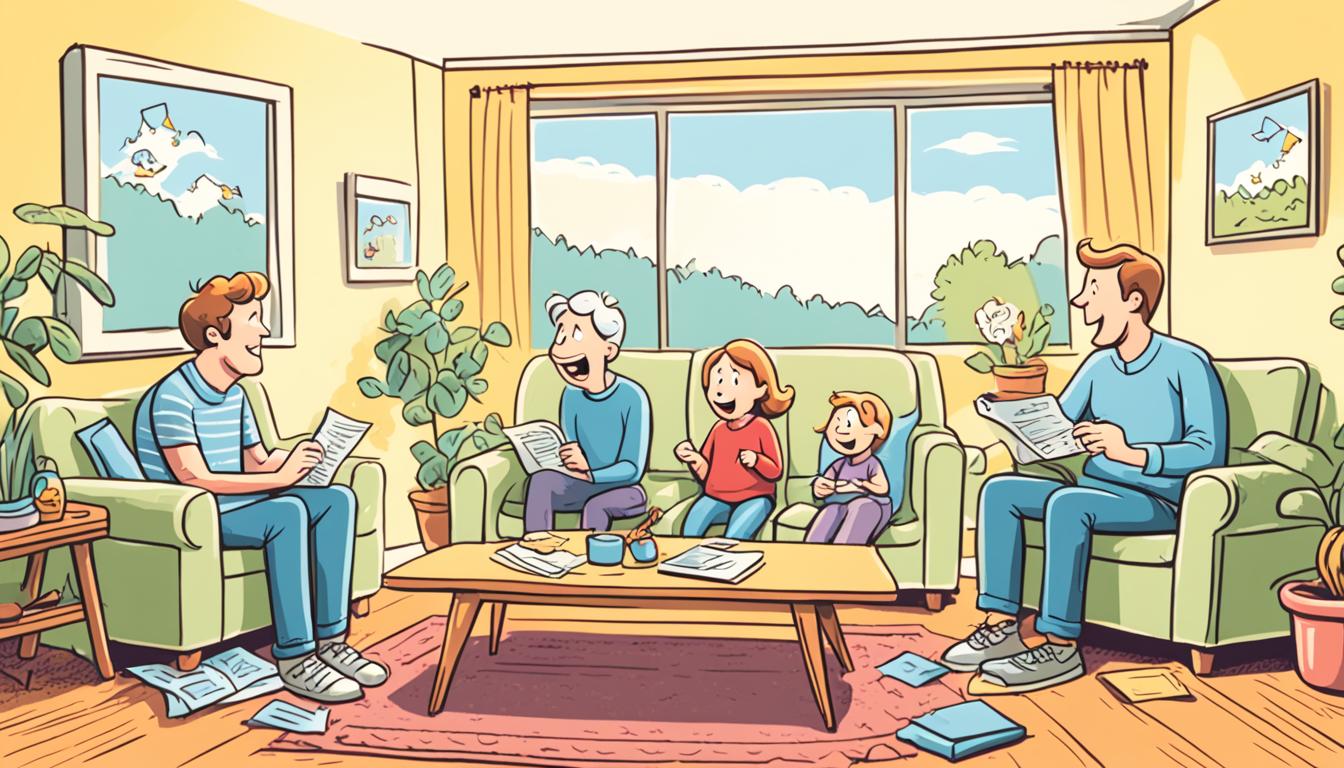Do you ever find yourself struggling to understand introverts who seem to prefer solitude over social interactions? You may wonder why they need so much alone time or feel confused about how to effectively communicate and build relationships with them. In this article, we will explore nine easy tips that will help you navigate the world of introverts who prefer solitude, allowing you to create fulfilling and respectful interactions.
Key Takeaways
- Introverts who prefer solitude need alone time to recharge and feel energized.
- Respect their need for extended periods of alone time without taking it personally.
- Check in with introverts from a distance to maintain a connection without overwhelming them.
- Suggest occasional independent parallel play to satisfy their need for solitude while still enjoying companionship.
- Express gratitude for introverts’ rare social interactions to show appreciation for their effort.
Don’t take their time apart personally
Understanding introverts and respecting their need for personal space and alone time is essential for building harmonious relationships. It’s crucial not to take their desire for solitude personally. Remember, their introverted nature dictates the way they recharge and find energy.
Introverts value their personal space and alone time. It’s not about you; it’s about their introverted nature and the way they recharge.
Feeling rejected or hurt by an introvert’s need for solitude can strain the relationship. Instead, try to empathize with their perspective and acknowledge their need for alone time.
To better understand the importance of personal space for introverts, consider this example:
| Scenario: | Sarah, an introvert, has had a long day at work and needs some time alone to unwind and recharge. |
|---|---|
| Your approach: | You recognize Sarah’s need for personal space and give her the evening to relax on her own. |
| Result: | Sarah feels understood and appreciates your consideration, strengthening your relationship. |
By respecting an introvert’s need for alone time, you create an environment that fosters understanding and encourages open communication. Embrace their introverted nature and allow them the personal space they require.
Respect need for extended alone periods
Introverts often require extended periods of alone time to recharge and restore their energy. It’s crucial to respect their need for these uninterrupted moments.
Creating introvert-friendly environments plays a significant role in supporting their preference for solitude. By providing quiet and peaceful spaces where introverts can retreat, you enable them to recharge effectively. Designate a cozy corner in your home as a dedicated “quiet zone” or set up a comfortable reading nook where introverts can escape the noise and chaos of daily life.
Avoid interrupting or invading their alone time, as it can be mentally and emotionally draining for them. Recognize that introverts need this time to reflect, focus, and refresh their minds. By giving them the space they require, you demonstrate your understanding and respect for their introverted nature.

Here is an example table illustrating the benefits of creating introvert-friendly environments:
| Introvert-friendly environments | Benefits |
|---|---|
| Designated quiet spaces | Allows introverts to recharge without interruptions |
| Comfortable retreat areas | Reduces sensory overload and promotes relaxation |
| Peaceful surroundings | Helps introverts find clarity and focus |
By creating introvert-friendly environments and respecting their need for extended alone periods, you provide introverts with the essential conditions they seek to restore their energy and thrive.
Check in from a distance periodically
While introverts appreciate their solitude, it’s essential to maintain a connection with them. Checking in from a distance periodically is a thoughtful way to show that you care about their well-being. A simple text message or email can let them know that you’re thinking of them without intruding on their personal space. It allows introverts to feel connected while still respecting their boundaries.
When checking in, keep in mind the following:
- Respect their boundaries: Understand that introverts value their alone time, so avoid overwhelming them with constant communication.
- Find the right balance: Strive to maintain a connection while also allowing introverts the space they need. Tailor your check-ins to their preferences and comfort level.
For example, sending a text message like “Hey, just wanted to say hi and see how you’re doing. No need to reply if you’re busy. Take care!” shows that you are thinking of them without imposing any pressure to respond immediately. It gives introverts the freedom to engage when they feel comfortable.
Remember, effective communication with introverts is about understanding their need for solitude while still expressing care and maintaining a connection.
Suggest occasional independent parallel play
When interacting with introverts who prefer solitude, it can be helpful to suggest occasional independent parallel play. This means engaging in separate activities while being in each other’s company. For example, you could both work on individual projects or read separate books in the same room. This allows introverts to have their alone time while still enjoying companionship and a sense of belonging.

| Benefits of Independent Parallel Play for Introverts |
|---|
| 1. Allows introverts to recharge and have alone time. |
| 2. Provides a sense of companionship and belonging without excessive social interaction. |
| 3. Reduces pressure to engage in constant conversation or entertainment. |
| 4. Respects introverts’ need for solitude while still maintaining a connection. |
Leave invitations without pressure
When inviting introverts to social events or activities, it’s important to leave the invitations without pressure. Understand that they may decline social gatherings or prefer smaller and more intimate settings. Avoid making them feel guilty or obligated to attend events that may drain their energy. Give them the freedom to choose the social interactions that align with their comfort level.
For example, imagine you have a friend named Sarah who is an introvert. You know that Sarah enjoys spending time alone and finds large social gatherings overwhelming. Instead of pressuring Sarah to attend a crowded party, you could invite her to a quiet dinner with a small group of close friends. This way, Sarah can feel more comfortable and less drained by the social situation.
Express care through trust, not intrusion
Expressing care for introverts should be based on trust and respect for their boundaries. It is essential to understand that introverts value their personal space and privacy. Intruding upon their personal space or prying into their thoughts and feelings can be overwhelming and uncomfortable for them.
Instead, show your care through actions that support their introverted nature. Give them the space they need when they need it. Respect their boundaries and avoid pushing them to share more than they are comfortable with. Remember, introverts often express themselves differently and may not openly express their emotions or thoughts.
By being understanding and sensitive to their preferences, you can build trust with introverts and foster a deeper connection. This means recognizing and appreciating the significance of their need for solitude, and allowing them the freedom to recharge in their own way.

- Respect their need for alone time and personal space.
- Avoid putting pressure on them to share more than they are comfortable with.
- Listen actively and attentively to their words, even if they seem reserved.
- Be patient and understanding when they need time to process their thoughts and feelings.
- Offer support and encouragement without pushing them out of their comfort zone.
By following these guidelines and expressing care through trust, you can nurture healthy and fulfilling relationships with introverts while respecting their boundaries.
Thank them for sharing rare social interactions
Introverts often engage in social interactions less frequently than their extroverted counterparts. When introverts do step out of their comfort zones and engage in social situations, it’s important to acknowledge and appreciate their efforts. Thank them for sharing these rare social interactions, as it shows that you value their willingness to step outside their introverted tendencies for meaningful connections.
For example, if your introverted friend attends a party with you, express your gratitude for their presence and let them know how much their participation means to you. Acknowledging their efforts will encourage them to continue stepping outside their comfort zones and can strengthen your bond.
| Finding Common Ground | Comfort in Shared Interests |
|---|---|
| Discover shared hobbies or activities that both of you enjoy, providing a comfortable topic of conversation. | Engage in activities that allow the introvert to feel at ease, such as going for a walk in nature or having a quiet evening at home. |
| Respect each other’s boundaries and preferences for socializing, ensuring a balanced relationship. | Encourage open communication and dialogue, allowing the introvert to express their thoughts and feelings without judgment. |
| Plan outings or events that cater to both introverted and extroverted preferences, finding a middle ground that respects each other’s needs. | Recognize the introvert’s achievements in stepping out of their comfort zone, boosting their confidence and sense of accomplishment. |
In summary, expressing gratitude for rare social interactions demonstrates your understanding and respect for introverts’ boundaries. It encourages them to continue opening up and fosters a supportive and nurturing relationship.
Don’t equate time alone to dislike for you
It’s crucial not to equate introverts’ need for alone time to a dislike for you or others. Introverts’ preference for solitude is not a reflection of their feelings towards others. Remember that they require time alone to recharge and process their thoughts. Avoid making assumptions or taking their desire for solitude as a personal rejection.

| Don’t: | Do: | |
|---|---|---|
| Assumption | Assume that their need for alone time means they don’t enjoy your company. | Recognize that their need for solitude is a way for them to recharge and doesn’t reflect their feelings towards you. |
| Personalize | Take their desire for alone time as a personal rejection. | Understand that their need for solitude is about self-care and not a reflection of your relationship. |
| Questioning | Constantly question why they want to be alone. | Respect their boundaries and trust that they know what they need to recharge. |
Remember, introverts require alone time to gather their thoughts and regain their energy. Avoid assuming that their need for solitude means they dislike your company or that of others. Respect their boundaries and understand that their preference for alone time is not about you, but rather a way for them to recharge and take care of themselves.
Communicate comfort with their solitude
When dealing with introverts who prefer solitude, it is crucial to communicate your comfort and understanding of their need for alone time. By expressing your support for their introverted nature, you can strengthen your connection and create a safe space for them to recharge. Here are some strategies to facilitate effective communication:
1. Active Listening:
- Pay attention to their verbal and non-verbal cues to understand their need for solitude.
- Avoid interrupting or dismissing their desire for alone time.
- Show empathy by acknowledging their introverted nature and assuring them that their need for solitude is respected.
2. Open Dialogue:
- Initiate an open and honest conversation about their introverted preferences.
- Ask questions to gain insight into their self-care practices and personal boundaries.
- Discuss how you can support their need for solitude while maintaining a healthy relationship.
3. Set Expectations:
- Clearly communicate your understanding of their introverted nature and the importance of their alone time.
- Establish boundaries and expectations regarding social interactions and personal space.
- Reassure them that their solitude is not a problem for you and that you appreciate the value they place on self-care.
By implementing these strategies, you can foster a deeper understanding and acceptance between you and the introvert who prefers solitude. Building a solid foundation of communication will ultimately lead to a healthier and more fulfilling relationship overall.
FAQ
How can I effectively deal with introverts who prefer solitude?
To effectively deal with introverts who prefer solitude, it’s important to respect their need for alone time and personal space. Understand that their introverted nature is not about you but about the way they recharge. Give them the space they need and avoid taking their desire for solitude personally.
How do I respect their need for extended alone periods?
It’s crucial to respect introverts’ need for extended periods of alone time. Create introvert-friendly environments where they can retreat and recharge. Avoid interrupting or invading their personal space during these periods, as it can be draining for them. Understand that alone time is essential for their mental and emotional well-being.
How can I maintain a connection with introverts while respecting their boundaries?
Check in from a distance periodically to show that you care about introverts who prefer solitude. Send a text message or email to let them know you’re thinking of them, but respect their boundaries and avoid overwhelming them with constant communication. Finding the right balance between staying connected and allowing them space is crucial.
What is occasional independent parallel play, and why is it helpful for introverts?
Occasional independent parallel play refers to engaging in separate activities while being in each other’s company. This allows introverts to have their alone time while still enjoying companionship. Suggesting this strategy can help introverts who prefer solitude feel comfortable and understood, as it provides a balance between alone time and social interaction.
How can I invite introverts to social events without pressuring them?
When inviting introverts to social events, it’s important to leave the invitations without pressure. Understand that they may prefer smaller and more intimate settings or decline social gatherings altogether. Avoid making them feel guilty or obligated to attend events that may drain their energy. Allow them to choose the social interactions that align with their comfort level.
How can I express care for introverts without intruding upon their personal space?
Expressing care for introverts should be based on trust and respect for their boundaries. Avoid intruding upon their personal space or prying into their thoughts and feelings. Show your care through actions that support their introverted nature, such as giving them space when they need it and being understanding of their preferences.
How can I appreciate introverts’ efforts in rare social interactions?
Introverts engage in social interactions less frequently than extroverts. When they do step out of their comfort zones and engage socially, it’s important to acknowledge and appreciate their efforts. Thank them for sharing these rare social interactions, as it shows that you value their willingness to connect with others, despite their introverted tendencies.
Should I interpret introverts’ need for alone time as a dislike for me?
It’s crucial not to equate introverts’ need for alone time to a dislike for you or others. Introverts’ preference for solitude is not a reflection of their feelings towards you. Remember that they require time alone to recharge and process their thoughts. Avoid making assumptions or taking their desire for solitude as a personal rejection.
How can I communicate my comfort with introverts’ need for solitude?
To effectively deal with introverts who prefer solitude, it’s essential to communicate your comfort with their need for alone time. Let them know that you understand and respect their introverted nature. Assure them that their solitude is not a problem for you and that you support their self-care practices. This open and honest communication will foster a deeper understanding and acceptance of one another.

![9 Reasons Why Many Introverts Have Social Anxiety [It’s Serious!] 9 Reasons Why Many Introverts Have Social Anxiety [It’s Serious!]](https://personalitiesunlocked.com/wp-content/uploads/2024/05/Do-Introverts-Have-Social-Anxiety.jpg)



